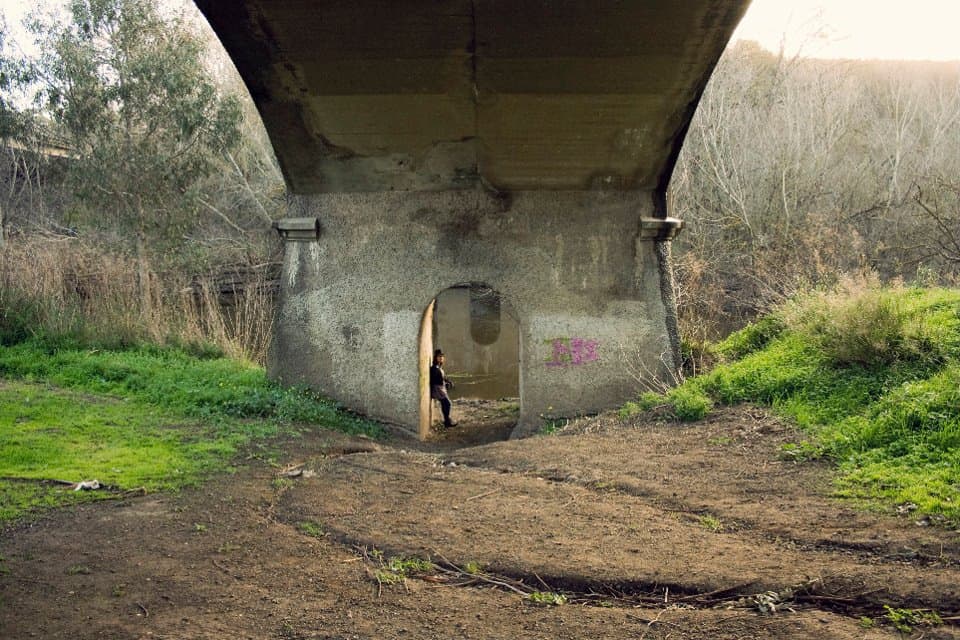 One of my greatest challenges of being a parent was ‘letting go’ of my children. Right from the moment they began to cautiously make their first steps I experienced anxiety at a new level. The environment suddenly became a minefield of potential dangers to my vulnerable children. Do I need supporting evidence? There was that day when my 18 month old daughter pulled the television and the supporting cabinet beneath it, over, landing on top of her little body (thankfully there were no broken bones) and the day that her 2 year old sister almost drowned herself when, in a moment of unbridled excitement she headed straight into the water with no knowledge of how swiftly the ground dropped beneath her feet (she still survives). Need I go on?
One of my greatest challenges of being a parent was ‘letting go’ of my children. Right from the moment they began to cautiously make their first steps I experienced anxiety at a new level. The environment suddenly became a minefield of potential dangers to my vulnerable children. Do I need supporting evidence? There was that day when my 18 month old daughter pulled the television and the supporting cabinet beneath it, over, landing on top of her little body (thankfully there were no broken bones) and the day that her 2 year old sister almost drowned herself when, in a moment of unbridled excitement she headed straight into the water with no knowledge of how swiftly the ground dropped beneath her feet (she still survives). Need I go on?
From the moment my children learnt to walk, I felt like my heart had grown arms and legs and was happily engaged in exploring the world outside my body. Of course, you know that this is the way it should be but it doesn’t prevent you from going on the emotional roller-coaster ride that having children takes you on. Your instinct and priority as a parent, is to protect your children from all potential harm. What do you do then, when you realize that your young person is harming themselves? How do you feel? Angry? Helpless? Anxious? Your own children may be adults with their own lives now however you may know other young people who are going through this.
Unfortunately, self-harm is not uncommon, especially among our young people, and the more you know about what is helpful and what is not helpful, the better your support will be. So let’s have a talk about the issue of self-harm and strategies to deal with it.
What is Self Harm?
How can you help your young person?
- Try not to overreact. Self harm behaviour is often initiated by stress, anxiety and /or conflict in a person’s life and by overreacting you can increase these unwelcome feelings and unwittingly exacerbate the need your child feels to harm themselves. Remember that self-harming behaviour does not imply that they are suicidal.
- Understand that self harm is not “attention-seeking” behaviour but a genuine cry for help and needs to be taken seriously. ‘Just ignore it and it will go away’ will not work in this circumstance.
- Attend to your own emotions, so that you can be present to your young person without judgement, blame, anger or anxiety. Take the time to see a Counsellor so that you can talk about your own feelings and ‘contain’ what you feel when you are with your young person.
- Be attentive and available to your young person. Understand that they may not feel ready to talk to you when you want them to talk. Try to be sensitive to them and understand that they are experiencing enormous emotional pain. They do not have the coping ability to deal with your own anxiety or frustration.
- Encourage them to get help from a helpline, or a qualified doctor or counsellor. These helping professionals have the skills to help your young person. Often a young person needs to talk to someone other than family and friends. This is not a reflection on your inability to understand them or their rejection of you, but a need for your young person to be able to explore their own experience without feeling embarrassed or ashamed and in a confidential and objective context.
- Self harm is not something that your young person can ‘just stop’ doing. Self harm behaviour is triggered by a variety of stressors including stressful situations, depression, self-hatred, and unresolved past issues. It can take a person a long time to overcome the need to self harm.
- If your young person does hurt themselves seriously, contain your own emotional response – in particular anger, blame or frustration. Respond with first-aid and if necessary get medical help immediately.
Go to the following link: http://www.australiacounselling.com.au/signs-young-person-self-harming

Leave a Reply